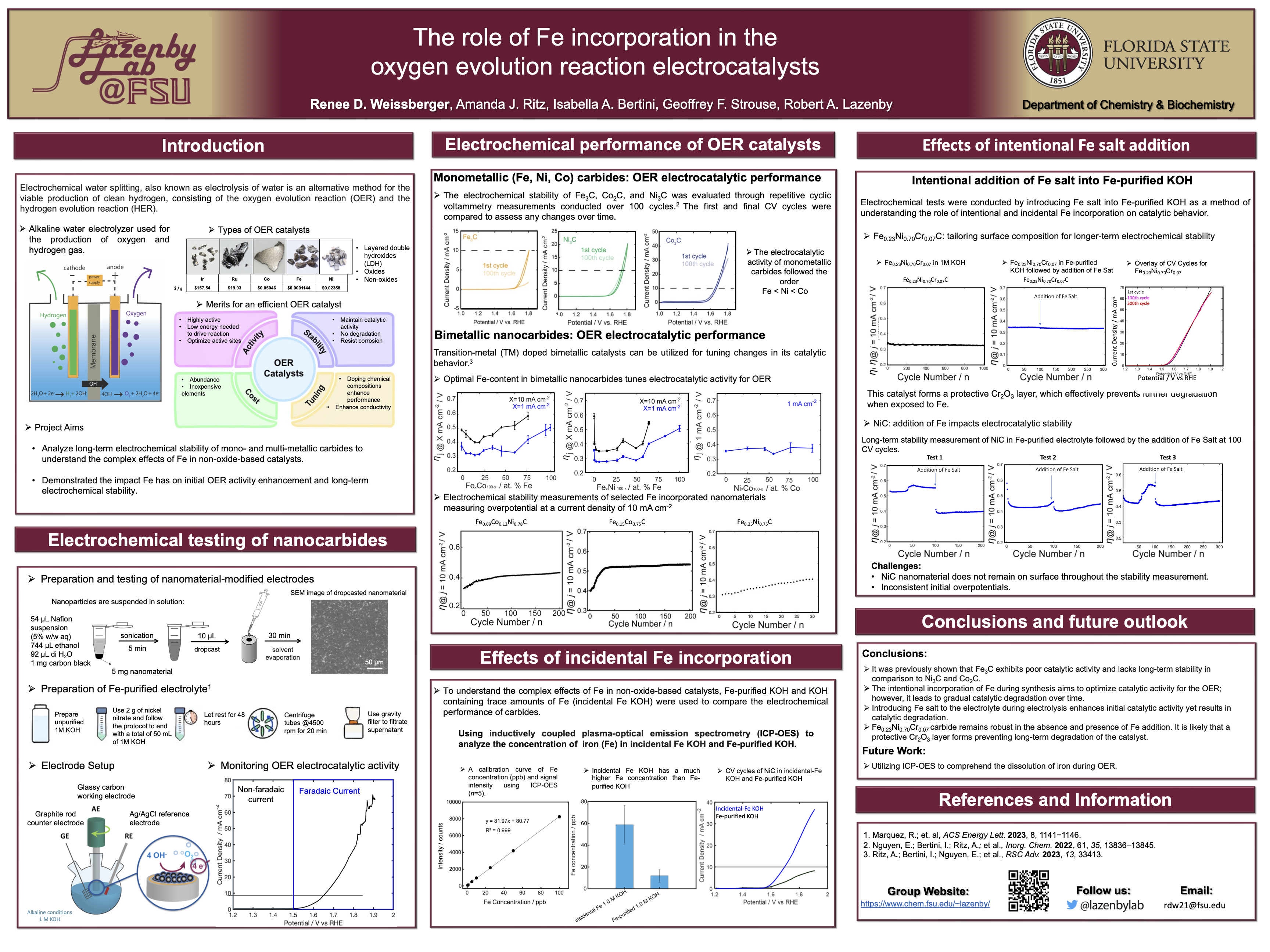Research Symposium
24th annual Undergraduate Research Symposium, April 3, 2024
Renee Weissberger Poster Session 2: 10:45 am - 11:45 am/164

BIO
I am Renee Weissberger, a senior at Florida State University majoring in Biological Sciences. I am currently earning a bachelor's degree with hopes to pursue a doctorate in Optometry. Currently, I am engaged in research at the Lazenby lab focusing on electrochemistry. Through this work, I have developed an interest and comprehension of electrolysis, an electrochemical water splitting technique.
The role of Fe incorporation in the oxygen evolution reaction electrocatalysts
Authors: Renee Weissberger, Robert LazenbyStudent Major: Biological Science
Mentor: Robert Lazenby
Mentor's Department: Electrochemistry Mentor's College: Florida State University Co-Presenters:
Abstract
Conventional methods for hydrogen production emit significant amounts of greenhouse gases. To mitigate the environmental impact, we can utilize electrochemical water-splitting as a cleaner alternative for producing hydrogen. This method involves two half reactions: the hydrogen evolution reaction (HER) and the oxygen evolution reaction (OER). OER is often recognized for its sluggish kinetics but introducing an efficient catalyst can enhance the rate of oxygen production and improve the efficiency of the overall reaction. The electrocatalytic performance and durability of transition metal (TM) non-oxide-based catalysts for OER have recently been reported. However, there remains a significant knowledge gap in identifying long-term effects of electrochemical surface oxidation on these materials. Here, we show that the intentional incorporation of Fe to other transition metal based (Co, Ni, Cr) carbides can enhance the initial OER activity, but as Fe surface oxides form the OER activity can degrade. To understand the complex effects of Fe in non-oxide-based catalysts, the long-term electrochemical stability of mono- and multi-metallic carbide catalysts were investigated. In this work, Fe-purified KOH and KOH containing trace amounts of Fe were used to compare the electrochemical stability performance of the carbides using voltametric techniques. These measurements enabled the evaluation of the catalytic activity and stability for non-oxide-based catalysts and demonstrated the impact Fe has on initial OER activity enhancement and long-term activity over time. Our study for the role of Fe aims to inform the design of future non-oxide electrocatalysts for the OER, advancing sustainable and affordable hydrogen production and storage.
Keywords: Electrocatalysis, Electrolysis, Catalysts, Carbides


